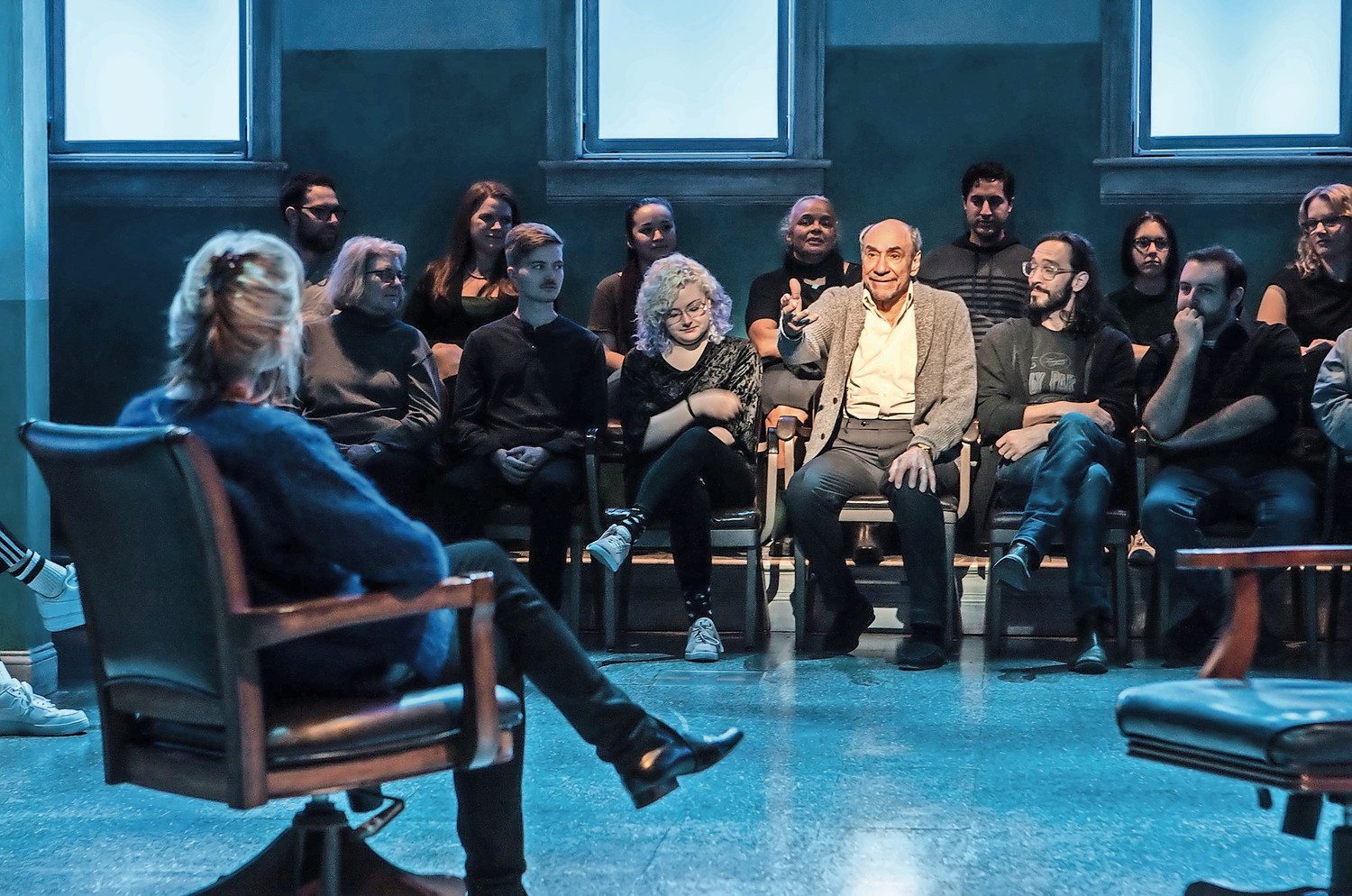‘Otto’ — Restless minds, and those who guide them
The subject of David Rabe’s new play “Good for Otto” is the vast ocean of the human heart.
This maelstrom of emotion swirls out of a deceptively simple setting: two chairs in a mental health clinic in rural Connecticut. In Derek McLane’s open set, a few audience members take seats in the waiting room.
That fits. Rabe knows we are all waiting, and needy. “Good for Otto” reveals the complete picture. We see the poor souls on edge, how varied and grueling a personal crisis can be, and the creative interventions of the caregivers.
Anchored by Ed Harris and Amy Madigan as clinic psychotherapists, the cast of this admirable New Group production delivers a constant wallop. F. Murray Abraham, Kate Buddeke, Laura Esterman, Mark-Linn Baker, Rileigh McDonald, Kenny Mellman, Maulik Pancholy and Rhea Perlman all provide vivid portraits of the clinic clientele.
The delightful Ms. McDonald stands out in this veteran cast as a vulnerable child on the fringes of the foster system. Her character speaks eloquently of “the storm” that seethes inside her.
The play does not shy away from the tough questions her case presents for both therapist and foster parent. The thorny complications of love and loss are always clear, as are the hovering realities of managed care.
Rabe briskly renders the protocols of bureaucratic oversight, and how they can clash with a medical professional’s compassionate judgment, a conflict by fax and phone call that will be all too familiar to anyone in health care.
We see both sides, and how the limited currency of workplace time impacts everyone. In what might be a shallow role in the usual circumstances, Nancy Giles offers nuance and conviction in her standoff with a doctor’s pleas.
Bubbling up within the action is the constant threat of a worst-case scenario, one that literally haunts Ed Harris’ Dr. Michaels as the heartache of loss intermingles in both his imagined and clinical realities. Harris articulates the contradictions in a passionate and thoughtful performance.
As his foil, Charlotte Hope lurks close by to embody the tug of blood and failure, a permanent reminder that any understanding of troubled souls is often impossible.
Mr. Rabe based “Good for Otto” on “Undoing Depression,” a book by Dr. Richard O’Connor (no relation), and the sweep of the text here embraces both documentary comprehension and clinical detail.
The writing rings true. We see all sides, and the challenge of attaining positive outcomes.
In a charming and mystical payoff, we also witness the curative uplift of an everyday, old-fashioned art form.
The show runs three hours, but this serves its many virtues. No skimping here. And the time flies. Scott Ellison’s direction of this top-notch cast enhances Rabe’s reach.
The result is like that of a great novel, one where we see generations and community, and both the inner and outer lives of fascinating characters, all at once.
We also see ourselves, caught up in the struggle to understand each other.
“Good for Otto” is an affirmation of the harmony that is all too often just out of reach.






